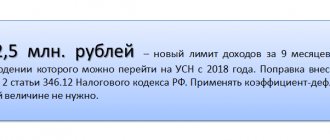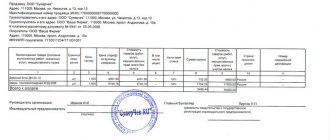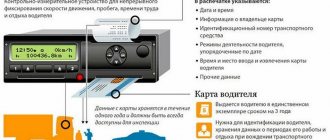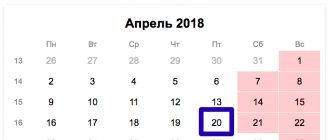Home / Tax changes / Tax changes in 2021
General changes Violations of the tax code Changes in VAT Changes in excise taxes Changes in personal income tax Changes in income tax Changes in mineral extraction tax Changes in the simplified tax system Changes in contributions to funds
In 2021, numerous changes to the tax code regulating the work of companies and individual entrepreneurs come into force. Amendments were made to the chapters of the Tax Code of the Russian Federation by Federal Laws of July 3, 2016 No. 242-F3, No. 243-F3 and No. 248-F3. The rules for administration and reporting of insurance premiums have undergone the greatest changes.
From January 1, 2021, tax authorities again received the functions of administering insurance premiums. Now insurance premiums are classified as tax payments and are regulated by tax rules (Clause 1, Article 2 of the Tax Code of the Russian Federation as amended by Law No. 243-FZ).
The rules for submitting reports on insurance premiums have also changed. Now a single report must be submitted quarterly, before the 30th day of the next month (Federal Law No. 243-FZ dated 07/03/2016).
Micro-enterprises received some relief; from January 1, 2017, the personnel registration procedure for them was simplified (Federal Law No. 348-FZ dated July 3, 2016).
The changes affected many areas of taxation. Let's look at them in more detail.
Penalties for non-payment of taxes will increase for legal entities
The Ministry of Finance included in the bill an increase in the amount of penalties for organizations and entrepreneurs who did not pay taxes on time, to 1/150 of the Bank of Russia refinancing rate, starting from 31 days of delay.
By the second reading, deputies softened and excluded this measure for individual entrepreneurs, leaving it at the level of 1/300 of the refinancing rate. At the same time, legal entities will still have to come to terms with the new price for late payment of taxes.
Desk audits of insurance premiums will be carried out by the Federal Tax Service of Russia
READ ON THE TOPIC:
Low-income Russians may be exempt from income tax.
The next amendment to the Tax Code is not the most pleasant for taxpayers, since it is aimed at strengthening fiscal control over insurance premiums, the administration of which will be transferred to the Federal Tax Service of Russia from January 1, 2021.
Deputies supported the proposal of the financial department, when conducting a desk tax audit of the calculation of insurance premiums, the territorial tax authority will be able to require from the organization paying insurance premiums all the information and necessary documents that confirm the validity of reflecting amounts not subject to insurance premiums and the application of reduced insurance premium rates . This amendment introduces additional control over calculations of insurance premiums, which next year all insurers-employers will submit to the Federal Tax Service.
At the same time, tax authorities will request from payers all additional documents and explanations for all calculations, which will indicate the amounts of various benefits, including information on sick leave. This change will add more work to accountants, who will need to send a response to every request from the Federal Tax Service.
Algorithm for issuing funds for reporting
The main document that regulates the algorithm for issuing accountable amounts to employees of an enterprise is instruction No. 3210-U. According to clause 6.3 of this regulatory act, the following sequence of actions for reporting is provided:
- The employee must provide the accountant (cashier) with an application signed by the manager for the release of funds for reporting in any form, indicating the date, as well as information about the amount and timing for which the money is issued. Or the issuance of money on account is carried out without an application, but on the basis of an order from the manager containing similar information: deadline, amount, purpose of the report, as well as the date and registration number of the document, signature of the manager (letter of the Central Bank of the Russian Federation dated 09/06/2017 No. 29-1-1 -OE/2064). In this case, the employee gets acquainted with the order and signs it. If during the day it is planned to issue money to several accountants, then the order can be general for them - with surname details.
- Before issuing a new amount to the accountant, the accountant should check the balance of settlements with this employee. If there is an outstanding debt on previously issued advances, the law does not prohibit paying a new amount. In order to control the return of accountable amounts, the management of the enterprise can still record in the Regulations on settlements with accountable persons a ban on the issuance of new amounts if the accountable person has a debt to the company.
- Within up to 3 working days after the date approved by the manager in the application, the employee is obliged to provide an advance report with correctly completed primary documents attached, and return unspent funds to the enterprise.
- Verification of the correctness of filling out the advance report and the compliance of the primary report attached to it is carried out by the accounting department within the period established by the local regulations of the enterprise.
NOTE! An employee can be given any amount to report - the 100,000-dollar limit rule does not apply here. However, if an employee settles with a counterparty on behalf of the company, then the cash payment under 1 agreement cannot exceed 100,000 rubles.
The accounting procedure for accountable amounts can be found in the publication “Accounting for settlements with accountable persons” .
An increase in excise taxes is inevitable
State Duma parliamentarians supported an increase in excise taxes on fuel, tobacco and wine. In addition, deputies introduced a new excise tax on electronic cigarettes. The new excise tax on wine will be double the current one. For wines with a protected geographical indication or protected designation of origin (other than sparkling wines), as well as wines produced without the addition of rectified ethyl alcohol, excise taxes from the beginning of next year will be 18 rubles per liter instead of 9 rubles. Excise taxes on mead, cider and poire were also increased - from 9 to 21 rubles per liter.
The government and parliament decided to increase excise taxes on gasoline of the fourth and fifth classes to 13,100 and 10,130 rubles per ton, respectively. Thus, from January 1, 2021, the excise tax price for the fourth class will increase by 800 rubles, and for the fifth class - 2,700 rubles per ton. The cost of diesel fuel will include an excise tax of 6,800 rubles per ton.
The excise tax rate on tobacco products next year will be 4,800 rubles per kilogram of heated, pipe, smoking, chewing, snuff and hookah tobacco. The bill states that in the period 2017-2019. Every year the excise tax will increase by 1%. From 2021, manufacturers and importers of electronic cigarettes will pay excise duty. The excise tax will be levied on nicotine-containing liquid - for 1 milliliter its rate will be 10 rubles, and one electronic cigarette will rise in price by at least 40 rubles.
Tax guarantee and interest-free loans
The amendments introduced changes to Art. 105.14 of the Tax Code of the Russian Federation, excluding from the list of controlled transactions two actions between Russian taxpayers at the same time:
- interest-free loans between organizations and/or individuals registered or residing outside of Russia;
- guarantee for tax payments for VAT and excise duties.
Such agreements will no longer be recognized as controlled, even between interdependent persons, and the guarantee of other organizations will become a full-fledged alternative to a bank guarantee. The Tax Code lists all the requirements for organizations wishing to become tax guarantors, as well as their responsibilities.
Correction number 99 in certificate 2-NDFL
It happens that a company submits information that does not need to be corrected, but simply cancelled. For this purpose, a special correction code is provided - 99. By entering it into the correction copy of the certificate, the previously transmitted information is neutralized. In such an adjustment, only section 1 “Data about the tax agent” and section 2 “Data about the individual” are filled out. The remaining sections are not completed.
Thus, a distinction is made between corrective forms, which are filled out to correct the information provided, and cancellation forms, the submission of which cancels them.
Plus one percent in favor of the federal budget
READ ON THE TOPIC:
A five-fold tax can be imposed on land for housing construction.
Starting from 2021, the distribution of funds that go to the budget at a twenty percent income tax rate will change.
From the beginning of 2021, regional budgets will receive only 17% from taxpayers, and not 18% as this year. At the same time, revenues to the federal budget from next year will amount to 3% income tax. According to deputies and officials, this percentage was taken as assistance to subsidized Russian entities. Thus, the state will take care of the poor regions at the expense of the rich. Amendments regarding the taxation of corporate profits were made to Article 265 of the Tax Code of the Russian Federation. They talk about restrictions on reducing the tax base for income tax on losses of previous years. Taxpayers will have the opportunity to reduce the basis by no more than 50%, so they will still have to pay tax on half of the profit. The positive side is that the limitation on the period for carrying forward losses (10 years) ceases to apply. In addition, deputies expect to introduce such a procedure by approximately 2021.
Mentioned in the draft law on the formation of a reserve for doubtful debts from legal entities. This indicator is of great importance when calculating income tax, and therefore legislators decided to clarify some of the nuances. In particular, they added to Article 266 of the Tax Code of the Russian Federation a new concept of doubtful debts under counter obligations.
“If a taxpayer has a counter-obligation (accounts payable) to a counterparty, doubtful debt is recognized as the corresponding debt to the taxpayer to the extent that exceeds the specified payables of the taxpayer to this counterparty,” the document says.
In addition, mandatory reserve funds for repaying doubtful debts in domestic organizations from next year may reach 10% of the tax base for the entire previous tax period, and not for the first quarter of the current one, as described in the current legislation (Article 266 of the Tax Code of the Russian Federation).
Is it possible to transfer accountable amounts to a card?
Current legislation does not prohibit the transfer of accountable funds to an employee’s salary card or to the corporate card of an enterprise. However, it is safer to approve such a procedure for transferring accountable funds in the accounting policy of the enterprise and the Regulations on settlements with accountable persons. In addition, it would not hurt the accounting department to develop a new advance report form, since the standard one only provides for cash handling.
In a situation with non-cash reporting, the employee also needs to provide a statement approved by the manager indicating all the required information, as well as card details. Officials outlined this requirement in a letter from the Ministry of Finance dated August 25, 2014 No. 03-11-11/42288. Or the manager can issue an order to transfer accountable amounts to a specific employee to a bank card. When transferring an advance in a payment order, in the “Purpose of payment” field, you should indicate that the money is accountable.
The Ministry of Finance confirms that accountable amounts can be transferred to the employee’s salary card (letter dated July 21, 2017 No. 09-01-07/46781).
For documents to confirm travel allowances paid by card, see here.
Support for individual entrepreneurs using simplified and patent taxation systems
At the proposal of the head of Russia Vladimir Putin, the revenue limit for applying the simplified taxation system (STS) will be increased from today’s 120 million rubles to 150 million rubles per year. This will allow more entrepreneurs and organizations to take advantage of the simplified tax system.
Another significant and long-awaited amendment to the Tax Code concerns individual entrepreneurs using the patent tax system. Starting from 2017, the taxpayer will not be deprived of the right to apply the PSN in the current period in case of late payment of the cost of the patent. Representatives of small businesses will have the opportunity to pay the overdue payment and continue to use the patent.
Starting next year, individual entrepreneurs who simultaneously use the PSN and the Unified Agricultural Tax or the simplified tax system will not be deprived of the opportunity to enjoy preferential tax regimes if they lose the right to use a patent. Let us remind you that, according to the current legislation, the loss of the right to the PSN automatically transfers the entrepreneur to the general taxation system for patent activities, even if he applies the simplified tax system or unified tax system for all other operations.
Payment of taxes and fees will be possible by third parties
READ ON THE TOPIC:
How to achieve a real estate tax recalculation
Starting next year, taxes will be allowed to be paid not only by the taxpayers themselves or their legal representatives, but also by third parties.
The draft law has amended the Tax Code, according to which such payment is permitted, and the payer for whom the tax was paid does not receive taxable income. Since 2017, according to the document, it has been possible to return or offset taxes paid by third parties. The new version of Article 346.17 of the Tax Code of the Russian Federation talks about the right of taxpayers using the simplified tax system to take into account debts for taxes, fees and insurance premiums, as well as the costs of repaying them as expenses in those reporting (tax) periods when they were actually repaid.
The amendments also affected the administration of mandatory insurance contributions. From January 1 next year, the Federal Tax Service will have the right to require from taxpayers, as part of a desk audit, information and documents that indicate their right to apply preferential rates of insurance contributions or exempt them from taxation of payments to employees.
In addition, separate divisions of organizations that have the authority to accrue payments and other remuneration in favor of individuals from January 1, 2021 will be required to register with the territorial bodies of the Federal Tax Service at their location. The amendments were made in accordance with the provision of the new chapter of the Tax Code “Insurance Contributions”, which obliges payment of insurance premiums at the location of the separate unit that makes payroll. This means that next year the obligation to pay contributions and report will arise only for those separate divisions whose parent organizations notify the tax authorities about granting them the authority to accrue payments to employees.
Quasi-taxes
Quasi-taxes include recycling and environmental fees, fees for the passage of trucks weighing more than 12 tons on federal highways (“Platon”), paid parking, import and export customs duties. Businesses also apply to fees for major repairs of apartment buildings if the office, hostel or store is located in a residential building or the company has an apartment on its balance sheet.
By the summer, Platon's tariffs may double, despite the fact that the Ministry of Economic Development proposed to maintain the preferential tariff until the end of next year. To avoid double taxation, owners of heavy trucks were allowed to reduce transport tax by the amount of payment to the Platon system. The transport tax itself has not changed.
2021 has brought a lot of trouble to collectors. The market for collection agencies is expected to shrink significantly due to the law regulating their activities that has come into force. A registration state fee of 100,000 rubles has also appeared, Inc. said. General Director of the Collection Development Center Dmitry Zhdanukhin. Plus, collectors are now required to insure liability to debtors; the insured amount under such a policy must be at least 10 million rubles.
Since last year, developers have been paying additional mandatory contributions. The government ordered the creation of a special fund in order to protect shareholders whose obligations to whom developers do not fulfill. For now, the amount of deductions cannot exceed 1% of the planned cost of building a house.
Quasi-taxes also include insurance premiums, explains Ilya Kucherov, deputy director of the Institute of Legislation and Comparative Law. According to him, unlike taxes, insurance premiums are reimbursable. “However, the fact of payment or non-payment of insurance premiums does not affect the right to receive social benefits, since they are guaranteed by the state,” the expert writes. This year, insurance premiums have remained the same: entrepreneurs pay the same amount for their employees as in 2021. However, fixed contributions for individual entrepreneurs have increased due to an increase in the minimum wage - since July it has been 7 thousand 500 rubles instead of 6 thousand 204 rubles. The total amount of contributions for individual entrepreneurs at the end of 2021 will be 27,990 rubles. In the near future, it is possible that non-payers of insurance premiums will be brought to criminal liability; the relevant bill should be considered in the second reading by the State Duma.
Officials offer businesses to pay other quasi-taxes - fees for the entry of vehicles into cities, resort fees in certain regions, deductions from bookmakers and betting to the sports fund, contributions to the Social Insurance Fund against possible bankruptcy of the employer, fees for crossing the state border by cars and freight trains.
What will the deflator coefficients be?
READ ON THE TOPIC:
For tax evaders, the fine will be increased by 1.7 times.
State Duma deputies did not consider it necessary to increase the increasing coefficient for UTII for 3 years.
Although the Ministry of Finance insisted that the changes would allow entrepreneurs to plan their tax burden, parliament came to the conclusion that it was necessary to maintain K1 at the 2015 level. According to the approved order of the Ministry of Economic Development, its size will be 1.798. Other coefficients will increase by the amount of inflation. All these deflator coefficients are taken into account when calculating certain taxes and fees in relation to legal entities, individual entrepreneurs and individuals. Thus, without a deflator coefficient it is impossible to calculate tax under the simplified taxation system, UTII. Also, without it, it will not be possible to find out the exact cost of the patent, the amount of the trade fee and the property tax of individuals. Let us recall that these coefficients are used to calculate fixed advance personal income tax payments paid by foreign citizens who are employed on the basis of a patent, in accordance with the requirement of Article 227.1 of the Tax Code of the Russian Federation.
What tax benefits will be provided to Russians?
Benefits for movable property that appeared on the organization’s register as fixed assets from January 1, 2013 will be determined by regional authorities, but they will receive such a right only from January 1, 2021. Taxpayers may be left without a benefit if it is not accepted by the entity at the regional level. Based on the fact that there is a shortage of funds in regional budgets, business representatives are likely to be deprived of property tax benefits for legal entities.
The bill also establishes VAT preferences. The zero rate for services for the transportation of passengers and luggage by public railway transport in long-distance traffic will be valid until January 1, 2030. Until the same date, parliamentarians extended the zero VAT rate on services for transporting passengers in electric trains. In addition, the zero VAT rate will remain until 2019 for air transportation to Crimea. The State Duma has allowed not to take into account personal income tax on income in the form of prize money for Paralympic athletes, as well as benefits for combat veterans.
The employee spent his money - is this accountable?
An application must also be obtained from the employee who spent his own funds on the needs of the company. However, it will have a slightly different wording since this case does not relate to reporting. Since the employer reimburses the employee’s expenses, the latter needs to write a statement requesting reimbursement of the funds spent. This application must be approved by the head of the company and also sign the corresponding order.
The procedure for reimbursing employees should be set out in the company’s local regulations. It must be accompanied by a sample of the corresponding report, which will confirm the expenses incurred by the employee.
IMPORTANT! In order to accept expenses reimbursed to an employee for tax accounting, you should carefully check the primary documents provided by him. Ideally, they should be registered to a company. If the primary document is registered in the name of an employee, inspectors may consider the actions of the employee and the enterprise to be a sales transaction and charge him additional personal income tax. But, according to the Ministry of Finance, such actions by tax officials are unlawful, since the employee does not receive economic benefits, which means there is no basis for taxation (letter of the Ministry of Finance dated 04/08/2010 No. 03-04-06/3-65).
Self-employed citizens will be exempt from personal income tax
The Tax Code will be supplemented with norms according to which self-employed citizens who provide services to others in raising children, housekeeping, and caring for the elderly will be exempt from personal income tax for two years. To exercise this right, a citizen will need to register with the territorial body of the Federal Tax Service and indicate the type of business by the end of 2021. After this, they will be given the status of individual entrepreneurs, allowing them to pay personal income tax in the amount of 13% or stop their activities altogether. Regional authorities will determine the types of activities of self-employed citizens.
For the amendments to come into force, the bill must be approved by the Federation Council and signed by the head of Russia.
What is an adjustment to a 2-NDFL certificate for the Federal Tax Service?
In addition to the necessary correction of information in the submitted certificate, the adjustment form must differ from the original one in the date and correction code. Here are the rules to follow when making adjustments:
- When submitting the primary form 2-NDFL, “00” is entered in the “Adjustment code” field; each corrected certificate is coded in numerical order - 01, 02, etc. the number of possible adjustments can be any – up to 98;
- The corrected document is submitted in the form that was valid in the period for which the information is corrected;
- The 2-NDFL certificate number remains unchanged during the adjustment, i.e., the same number that was assigned to the primary form;
- The 2-NDFL adjustment is dated to the actual date of preparation.
In addition, in order to avoid unnecessary questions from the Federal Tax Service, it is advisable to attach a cover letter listing the corrections made to the corrective certificates.








